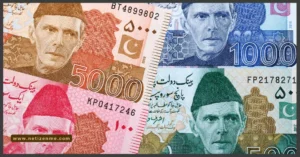
Do Industrialized Countries Have a Responsibility for the Well-Being of Developing Nations?
What is the role of developed countries? Who is responsible for developed or developing countries? What is the role of developed and developing countries in global warming? How developed countries are responsible for environmental degradation? Do Industrialized Countries Have a Responsibility for the well-being of developing nations? What is the responsibility of developed nations towards others?
with the recent boom in the globalization of economies, the responsibility that developing nations have toward lesser developed countries around the world and the impact that the policies of the former have on the latter have increasingly come into question. This question may seem to be a moral one at face value.
However, many argue that the driving forces backing this issue are more political than ethical. Either way, industrialized nations worldwide stand to benefit from providing aid and assistance to developing countries, and more often than nought, the outcomes of such cooperation are mutually beneficial.
This post seeks to present a few of the many reasons why developed economies should actively assist developing states in boosting their economies.
Investing in Emerging and Frontier Markets
One of the most sound arguments to be made in favour of strengthening the economies of industrialized nations is the win-win scenario that is developing emerging and frontier markets. In this case, frontier markets refer to less developed markets than emerging markets because they are either too small, risky, not lucrative enough to warrant investment, or any combination of the above. As the name suggests, emerging markets are markets that are on their way to becoming developed. (01)
Both these markets provide some of the most incredible opportunities for international businesses to grow. Firstly, entering an underdeveloped market and building it from the ground up allows international businesses to establish themselves as market leaders and gives them the first-mover advantage. Secondly, diversification into a new market can offset a decline in one economy by allowing for growth in another.
Developing Nations Bear the Brunt of Environmental and Social Crises
The disproportionate impact that developing nations suffer when the world is plunged into a health crisis, or the fact that less-developed states get the short end of the stick in the climate crises the world faces today, highlights the immediate need for assistance from industrialized nations.
Firstly, author Thomas Pogge argues that the world’s wealthiest countries are responsible for instilling and upholding unjust systems. These systems deny many their fundamental human rights and cause the disparity in living standards; the onus lies with them to eradicate poverty (02).
In addition to the obvious moral obligations, developed countries can gain from providing aid. For example, the innovations of developing nations facing health crises. These innovations allow industrialized countries to improve and inform their health systems (03).
Moreover, the adverse effects of crises faced by developing nations can also extend to developed countries, such as in the form of a steep decline in trade; disruption in supply chains; shutdown of outsourced operations, etc., all of which inevitably deal a blow to the economies of industrialized nations as well.
To conclude, the reasons mentioned above are just some of many that illustrate why industrialized nations should aid the lesser developed countries worldwide in developing their economies.
Refeheck the following reference articles to learn more about Do Industrialized Countries Have a Responsibility for the Well-Being of Developing Nations?
- Emerging Markets 101(2021). Ameriprise Financial. (URL)
- Pogge, T. (2008). World poverty and human rights. Cambridge: Polity.
- Syed, S. B., Dadwal, V., Rutter, P., Storr, J., Hightower, J. D., Gooden, R., … & Pittet, D. (2012). Developed-developing country partnerships: benefits to developed countries?. Globalization and health, 8(1), 1-10.
- Should You Carry Your Laptop Through Airport Metal Detectors?

- Fiscal Policies and Pakistan Economy

- Eye-opening Impact of Education on Jobs in the USA

This article is written by:
Our professional writers and editors are passionate about sharing high-quality information and insights with our audience. We conduct diligent research, maintain fact-checking protocols, and prioritize accuracy and integrity to the best of our capacity.
You can cite our articles under the author name "Netizenme"







